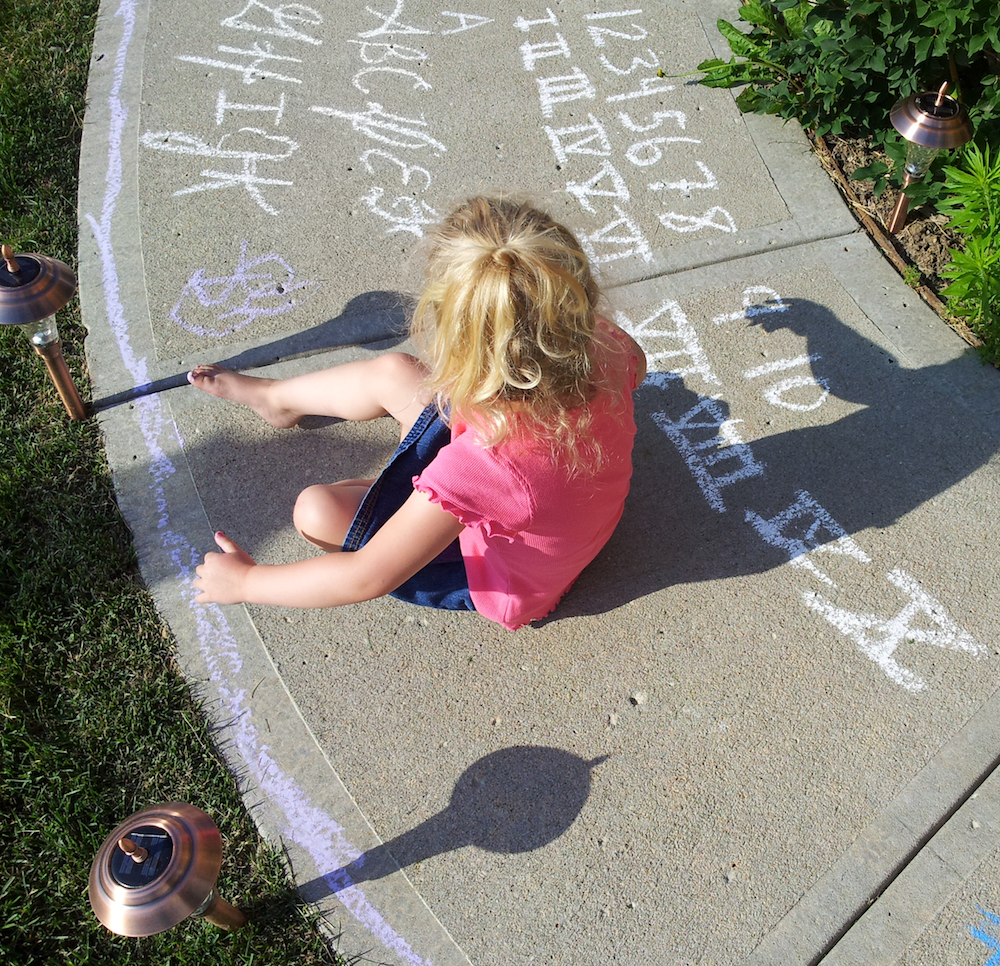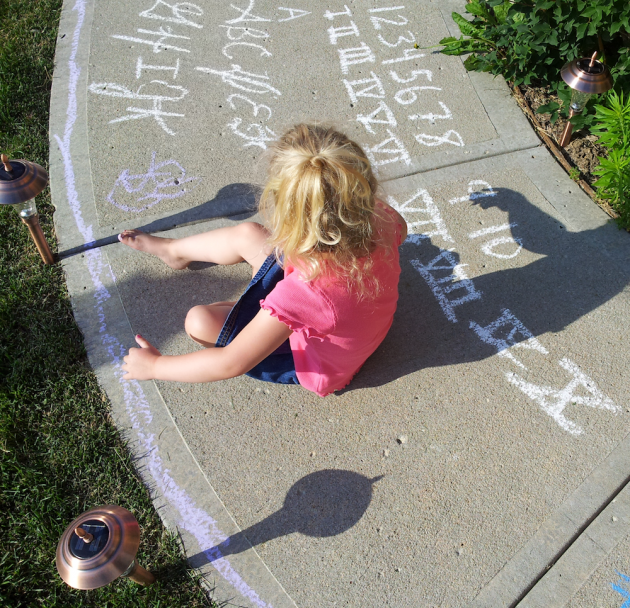Now that the desserts, chocolate covered strawberries, and spa water are done, my sisters have arrived and the Italian food is being made. My niece asked me to go outside with her and play with sidewalk chalk so I braved the 90+ degree heat and we broke out the giant box I keep at the house for the kids.
[mainbodyad]Halfway through our adventure, I had one of those ‘ah ha’ moments. Last month, we talked about the Belmont vs. Fishtown analogy used by Charles Murray in his new book, Coming Apart: The State of White America, 1960-2010 that details various socio-demographic changes among the stereotypical family of the Mad Men era; how the educated rich behave in certain ways that give the next generations enormous advantages. Here, in this moment, I was living it. I was doing it without even realize I was doing it; engaging in a behavior that creating a significant educational and financial advantage for the next generation.
See, we didn’t just play sidewalk chalk. Yes, there were some blue Christmas trees with purple snow, and fancy art to make the cement pretty. Instinctively, I used it as an opportunity to make a game out of learning the difference between Arabic numerals and Roman numerals. I also went over the different currency symbols – $, £, ¥, and € – as well as the names of each country that uses them, by explaining that the princesses live in England, and pay for dresses in Pounds Sterling, that Belle from Beauty and the Beast lives in France, and has to use Euros, that we live in the United States and use dollars, and that Mario and Luigi have to use Yen because they live in Japan. A few hours later, her great-grandmother (my grandma), who knew what we were doing, began quizzing her about the things she had learned to make sure she had retained the information.
How can a child who isn’t born into a family with that kind of educational and knowledge structure catch up by the time they enter elementary school? I am not sure they can. My niece already understands the connection between stocks (when you own a business) and dividends (when they mail you money if they make a profit). When she is ten years old, we’ll have all made sure she understands the branches of government, the tax structure, how to value a bond, and most of Western history. She will reach adulthood armed with far more knowledge about the world, and how to be successful in it, than a typical girl in the United States. The same goes for my children, and all of my other nieces and nephews.
[mainbodyad]Therein lies one of the sources of income inequality. Just as we used the Coca-Cola direct stock purchase plan to teach my youngest sister about investments, most of her education is going to take place outside of the classroom. What her formal teachers in K-12 pass onto her will be a fraction of what she learns from her parents, uncles, aunts, grandparents, great-grandparents, cousins, and family friends. When I have to travel on business, you don’t think I’ll take her if I have to go through Gettysburg, Pennsylvania, and use it as an opportunity to explain what happened there and how it influences her life today? When we start or acquire another business and she is older, don’t you think we’ll take the time to have her watch the process so she knows first-hand how to do it herself? We do it without even knowing we do it.
Society and Civilization Are Built Upon the Family
The family is the single most important social institution that has ever been created. If you destroy the family, and the ability to use it as a vehicle to pass on the distilled knowledge and wisdom of generations, you destroy the civilization. You cannot mass produce kids like widgets. You need a core group of people who are intimately, personally, and emotionally invested in their success, who instinctively think about teaching them.
If you are a parent, your child is going to learn most of life’s lessons by watching you. If you are a drunk, deadbeat, cheat, it is likely your child will be a drunk, deadbeat, cheat. If you are abusive and violent, it is likely your child will be abusive and violent. If you are irrational and superstitious, it is likely your child will be irrational and superstitions.
To use the language of Murray, the children of Belmont have enormous advantages that no amount of transfer payments or government programs can fix. We have to solve the marriage and family crisis in Fishtown. Though success stories do (thank God) happen, going off the raw data, we can tell that a child born in Fishtown to a family structure that isn’t conducive to success is probably going to end up poorly educated and broke, just like his or her parent(s). That is bad for social mobility, social fabric, and the future of the nation.
We cannot solve the issue from the top down. It must be fixed from the bottom up. It all goes back to the family.




